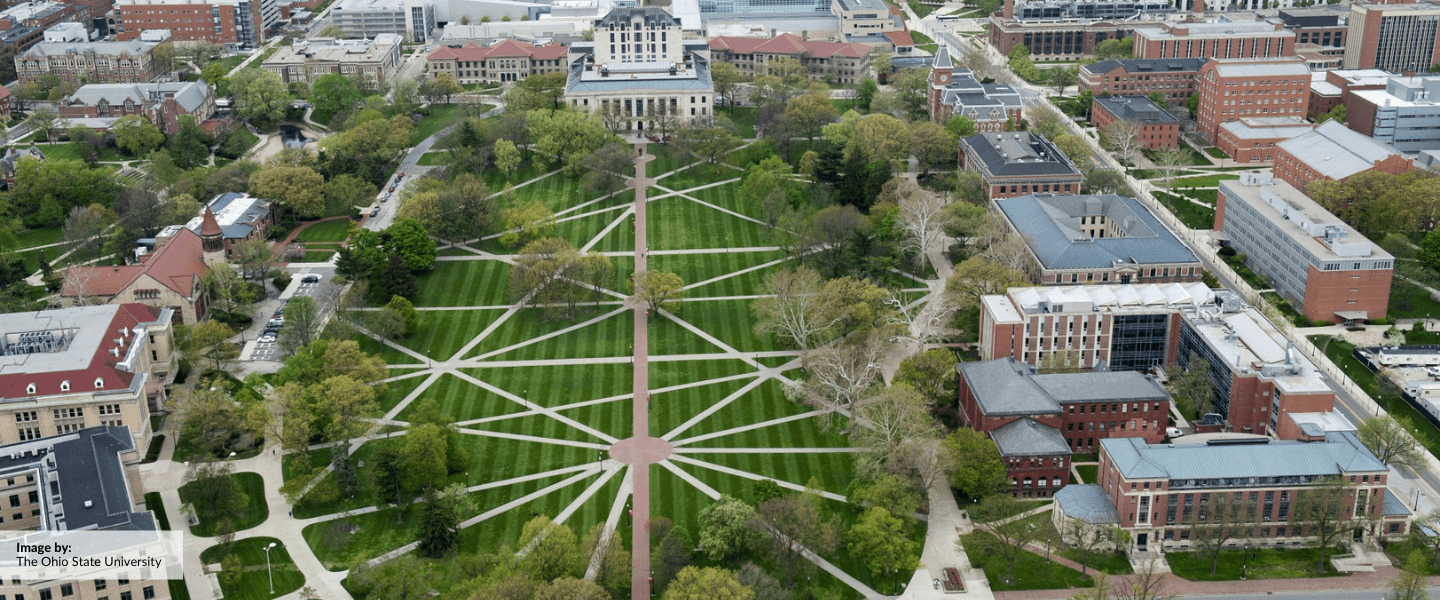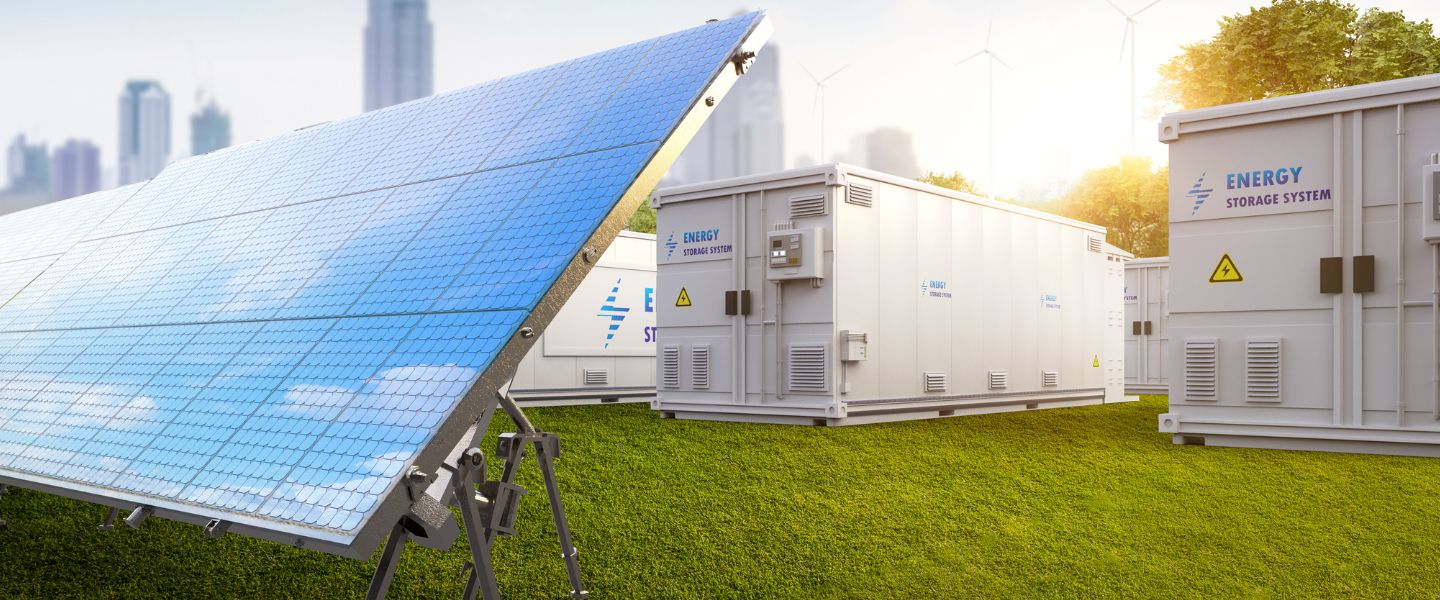ENGIE partners with The Ohio State University to transform the way communities use energy
An interdisciplinary team at The Ohio State University will lead one of 10 projects announced today by the U.S. Department of Energy (DOE) to transform the way communities use energy. As part of the effort, Ohio State received a $4.2 million DOE grant to be used over the next five years.
The projects will conceive, optimize, build and refine “Connected Communities,” in which buildings and distributed energy resources – such as photovoltaic solar panels, electric vehicle charging stations and storage – are controlled in coordination with the electrical grid. This leads to optimized energy consumption within the community, providing a model for reducing the building sector’s contribution to the climate crisis.
Led by College of Engineering Associate Dean of Facilities Michael Hagenberger, Engineering Assistant Professor Jordan Clark and ENGIE Technology Architect Mark Brown, Ohio State’s project leverages the university’s public-private partnership with Ohio State Energy Partners established in 2017 by ENGIE North America and Axium Infrastructure. Since then, the partners have embarked on a transformation of the 485-building Columbus campus with the installation of nearly 1,000 smart meters, approval of more than $190 million in energy efficiency measures and implementation of a central analytics and control platform. These infrastructure upgrades have resulted in Ohio State’s Columbus campus becoming the country’s largest microgrid and a replicable pilot for other communities.
“This interdisciplinary project will give Ohio State and Ohio State Energy Partners an opportunity to pursue boundary-pushing energy and sustainability research and innovations and pave the way for the integration of renewable energy sources into our portfolio, a key part of Ohio State’s 2050 carbon neutrality goal,” said Ohio State President Kristina M. Johnson.
America’s 125 million homes and commercial buildings currently use almost 40% of U.S. energy and 74% of its electricity, and account for the great majority of peak electricity demand. With technology like state-of-the-art sensors, controls and analytics, there is potential to significantly improve efficiency and reduce carbon emissions of our nation’s energy resources. A recent DOE study estimated that by 2030, grid-interactive efficient buildings (GEBs) could save up to $18 billion per year in power system costs and cut 80 million tons of carbon emissions each year.
The Ohio State project team will develop and manage its “Connected Community” as a pilot cluster of campus buildings, of diverse vintage and use type, and energy assets as a microgrid controlled by artificial intelligence (AI) tools. The energy assets include: a 105-megawatt combined heat and power plant; multiple central chiller plants; a steam plant; 65,000 square feet of solar power photovoltaics; 29 electric vehicle charging stations; and 50 megawatts of wind energy through a power purchase agreement.
ENGIE’s novel Smart Institutions platform will integrate data from these assets – streams of real-time utility data such as electricity and chilled water from campus buildings, hyperlocal weather data and occupancy data via wireless access points – to facilitate resource utilization decisions and control campus buildings in coordination, following extensive modeling in the project’s first few years.
“This is a unique opportunity to not only think about, but to actually use the campus to demonstrate the ability of a Connected Community approach to deliver added value to asset owners, community operators and grid operators while maintaining or improving occupant experience and facilitating deep penetration of renewables,” said Clark. “We have an amazing team comprising researchers and private-sector partners who will collaborate to provide this example in a region of the country that can be quite a challenging place to integrate renewables.”
The project team includes Ohio State faculty and staff working with experts from ENGIE, the National Renewable Energy Laboratory, the University of California, Berkeley, American Electric Power and PJM. In addition to the College of Engineering, staff and faculty from Ohio State’s Facilities Operations and Development, Office of Business and Finance, Center for Automotive Research, Sustainability Institute, John Glenn College of Public Affairs and Institute for Materials Research will contribute to project tasks and goals.
“We are very excited to see that our partnership with The Ohio State University and Axium Infrastructure continues to deliver value well beyond the contractual expectations,” said Serdar Tufekci, Head of Major Partnerships Energy Solutions Americas at ENGIE. “We look forward to expanding our collaboration with the Department of Energy to discover a new standard of innovation and technology which will help in our joint ambition to achieve campus carbon neutrality in a financially feasible way.”
Ohio State’s project will demonstrate cybersecure control of buildings and distributed energy resources for efficiency, demand management and provision of grid services. As a result, the “Connected Community” will be better equipped to respond to peak demand times and reduce energy consumption by 35% — an additional 10% beyond the 25% reduction goal in the Ohio State Energy Partners agreement. In addition, a major outcome of the project will be the demonstration of a 20% increase in net present value of existing renewable generation assets in an Ohio climate.
The 10 projects announced today by DOE will further demonstrate the capabilities of GEBs across a wider range of technologies, locations and building types. Ohio State’s project is the only one to occur on a university campus setting.
Source: https://news.osu.edu/department-of-energy-selects-ohio-state-as-one-of-…


